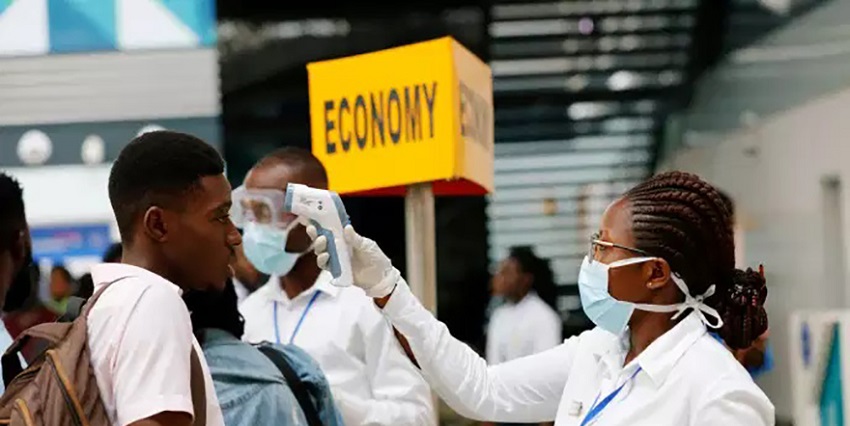The microfinance sector is organizing itself to face the effects of the health crisis
By Grameen Crédit Agricole Foundation

The COVID-19 virus continues to spread across the world, with more than 450,000 confirmed cases as of March 26, 2020. Governments, even those that deny it, are implementing increasingly stringent containment measures. As the situation evolves more rapidly every day, microfinance stakeholders are preparing to face this crisis by taking initial, beneficial steps.
Following its survey launched two weeks ago, the Grameen Crédit Agricole Foundation has created an observatory to continuously update the information collected through daily exchanges with its partner microfinance institutions (MFIs). The goal is to better understand how to support them and also to share its analyses with other financial stakeholders in the inclusive finance and development aid sectors.
Adapting to slow the spread of the virus
MFIs quickly recognized the health implications of the crisis. They immediately sought to adjust their operating procedures to address the risk of contamination by adopting recommended barrier measures and launching awareness campaigns among clients and employees.
“Handwashing is mandatory in all branches, with buckets and soap provided for everyone entering the offices. Hand sanitizers are provided on the counter for all customers who transact with tellers. […] The process of acquiring protective masks for tellers is underway. All staff members experiencing symptoms are strongly advised to stay home during monitoring. We have strongly advised all staff to avoid visiting branches given the evolving situation unless absolutely necessary.” – Partner in Sierra Leone
MFIs have also had to adapt to decisions taken by local authorities to slow the spread of the virus. Organizations in the highest-risk areas have been forced to partially or completely cease operations and close some of their local branches.
“All operations will be closed from 12:00 on 26 March 2020, in accordance with the President’s announcement on Monday 23 March, to allow staff to return home for the lockdown period. […] Disbursements to clients have been deferred until the end of the lockdown period.” – Partner in South Africa
Teleworking or staff rotation systems were quickly implemented at the vast majority of our partners. Faced with numerous bans on gatherings, institutions now work with a representative of the credit solidarity groups and stay in touch with their clients through instant messaging services.
Digital solutions are particularly suited to this context. They allow microcredit disbursements and remote debt collection to continue. At a dairy in Senegal, for example, payment to farmers for milk collection has not been disrupted because it has been made via a mobile payment system for several weeks.
“We encourage our customers to use mobile payment platforms for refunds via SMS, as it is the safest method available today.” – Partner in Uganda
While MFIs have been able to quickly adapt their operating procedures, the time has also come to prepare for the looming economic slowdown. Crisis meetings are multiplying at headquarters, or via video conferences from managers' homes, in order to put continuity plans in place.
New regulations
A growing number of countries are introducing new credit regulations to cushion the economic shock and the likely risk of insolvency among vulnerable customers. Regulators are encouraging financial institutions to grant payment deferrals to their clients affected by the crisis and to restructure loans. Such measures are already beginning to be put into practice.
“The government is also implementing measures to help local businesses, such as reducing interest rates. For example, the borrowing rate for secured loans has been lowered from 1%” – Partner in Myanmar
“The Central Bank of Kyrgyzstan has taken the following support measures: 1) cancel the accumulation of penalties for all borrowers; 2) review loan repayment terms and provide for a payment delay of at least 3 months when borrowers request it; 3) when restructuring loans related to changes in borrowers' cash flows due to the coronavirus, institutions should not consider them bad loans if the cause is the health crisis” – Partner in Kyrgyzstan
“The Central Bank has announced that financial institutions must accept all requests for repayment deferrals until April 30.” – Partner in Kosovo
The microfinance sector is demonstrating a high degree of responsibility and maturity in addressing this global crisis. The Grameen Crédit Agricole Foundation's partner institutions are producing regular financial statements and forecast analyses of their financing needs for the coming months. Although we have not yet observed any significant increase, changes in portfolio at risk (PAR) levels are systematically monitored with a very high degree of vigilance. Numerous exchanges between lenders, specialized nongovernmental organizations, and microfinance institutions are now taking place daily.
The Grameen Crédit Agricole Foundation maintains regular contact with its partners and colleagues in a reciprocal effort to pool ideas and resources. We share our analyses and best practices implemented by microfinance institutions with our partners, responsible investment stakeholders, and our peers.
Pooling available information, analyses, and anticipations, followed by the concerted implementation of shared decisions, are vital principles for our sector today. Through this transparency, this consultation, and a necessary adaptation of our intervention principles, we should be able to overcome the effects of this exceptional health crisis, which risks taking with it many microfinance institutions, leaving vulnerable populations in desperate situations. Because we know that the crisis will hit the most deprived populations first and foremost. Hard. Let us rise together to this humanitarian challenge.
___________________________________________________________
Discover other articles on: Covid 19 Observatory.



Leave a Reply
Want to join the discussion?Feel free to contribute!